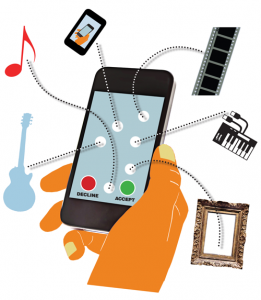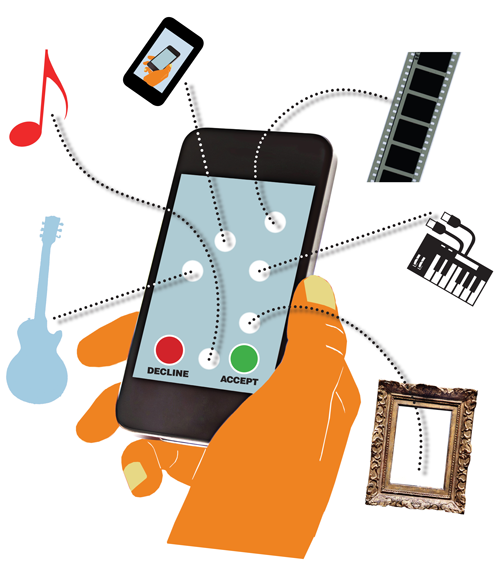
As the iPhone 6 is set to be released later this fall, it’s almost impossible not to think of all the cool apps and features that will come with it to make this phone the center of all attention.
With every technological advance that is made in the smartphone industry, it seems the phone gains just a bit more attention and the world surrounding loses a little more.
David Rose, instructor at the Massachusetts Institute of Technology media labs and CEO at Vitality, thinks he may have a solution to the issue at hand.
Author of the book Enchanted Objects: Design, Human Desire, and the Internet of Things, he presents the theory that cellphones “monopolize our attention” and that maybe there should be a way to integrate cellphone aspects into everyday objects.
While on Jon Stewart’s The Daily Show Aug. 26, he presented his idea in a practical form.
Using the GlowCap, he explained how this smartcap, placed over a pill bottle can help those using it to remember to take their medication.
“Notifies you through subtle lights and sound to remind you to take an important medication,” he said during the interview.
This cap will also send notifications to a phone as a backup if someone fails to hear it.
While it’s an interesting solution, it does raise the question of whether this will be another device to help people become more dependent on the gadgets and technology surrounding them.
A technological gadget such as this is great for those who are forgetful, and it’s hard not to associate it with the Remembrall in Harry Potter. It’s definitely a technology that could benefit people who have multiple medications to take, all at different times.
However, technology as it has been introduced has always taken a while to catch on to the targeted group, whether because of cost or the sheer rejection of new things.
It’s the utilization of this technology by people who aren’t forgetful or are only taking one medication that could create a dependency on technology.
People have been taking medicine for a long time, whether as a homemade medicinal cure-all or pharmaceutically engineered pills in more recent decades. Missing doses happens, but do people really need another notification on their phone or another device to make noise at them?
The idea that apps could be integrated into everyday items is a bit scary.
Between apps that can be purchased and new functions installed into each new model of a smartphone, it’s hard to imagine a world where something as simple as a pill bottle or a desk would make noise and electronically communicate to the user.
And just as difficult to imagine is a world where people rely so heavily on electronics to the extent that people could lose cognitive functions that trigger memory.
As great as it is to live in a world where technology has connected people and, in the same fell swoop, isolated them, it’s a whole different level of concern when people have fits of distress when the Wi-Fi is either locked or down.

